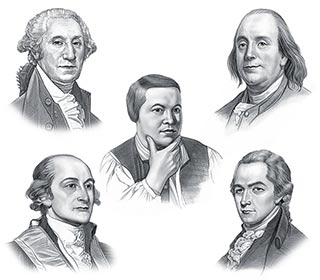Definition of the Sugar Act of 1764
The Meaning and Definition of the Sugar Act: The Sugar Act of 1764 was a British Law, passed by the Parliament of Great Britain. The Sugar Act of 1764 was a British Law, passed by the Parliament of Great Britain on February 6th, 1765, during the reign of King George III during the ministry of George Grenville (Lord Grenville), the British Chancellor of the Exchequer. The Act set a tax on sugar and molasses imported into the colonies which impacted the manufacture of rum in New England. The Sugar Act also taxed additional foreign goods including wines, coffee, cambric and printed calico. Timber and iron were included in the products that could be traded only with England.
Sugar Act and Stamp Act - British Policies, Laws and Taxes
The combination of the Sugar Act and the Stamp Act, so closely enacted, started the colonists down the Road to Revolution.
